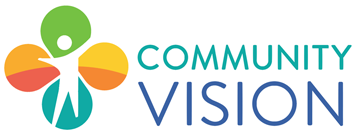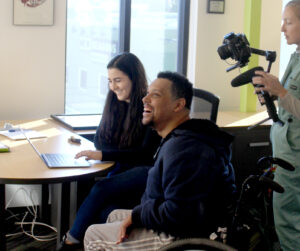‘Access Denied’ Examines the Housing Crisis for People with Disabilities
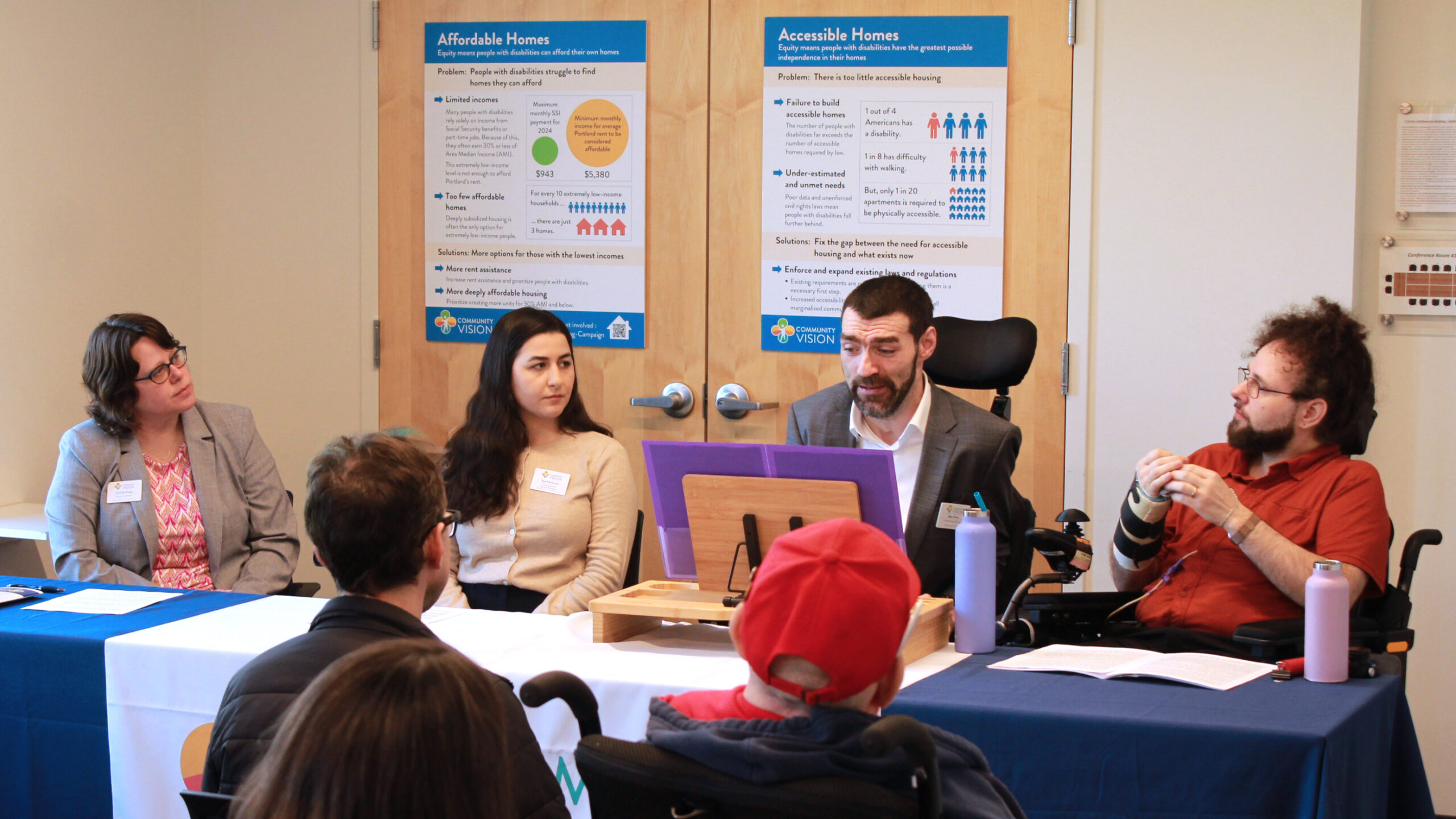
“Now is a critical time for advocacy around affordable, accessible housing,” said Jennifer Knapp, Community Vision’s executive director. “People with disabilities have been struggling to access homes in the community for a long time, but there is new momentum to build housing that meets their needs.”
Community Vision wants this new focus on creating homes to be equitable. On April 10, we welcomed lawmakers, disability services organizations, and other allies to an event on the housing crisis. We also launched a campaign for more affordable, accessible housing for people with disabilities.
New Report: ‘Access Denied’
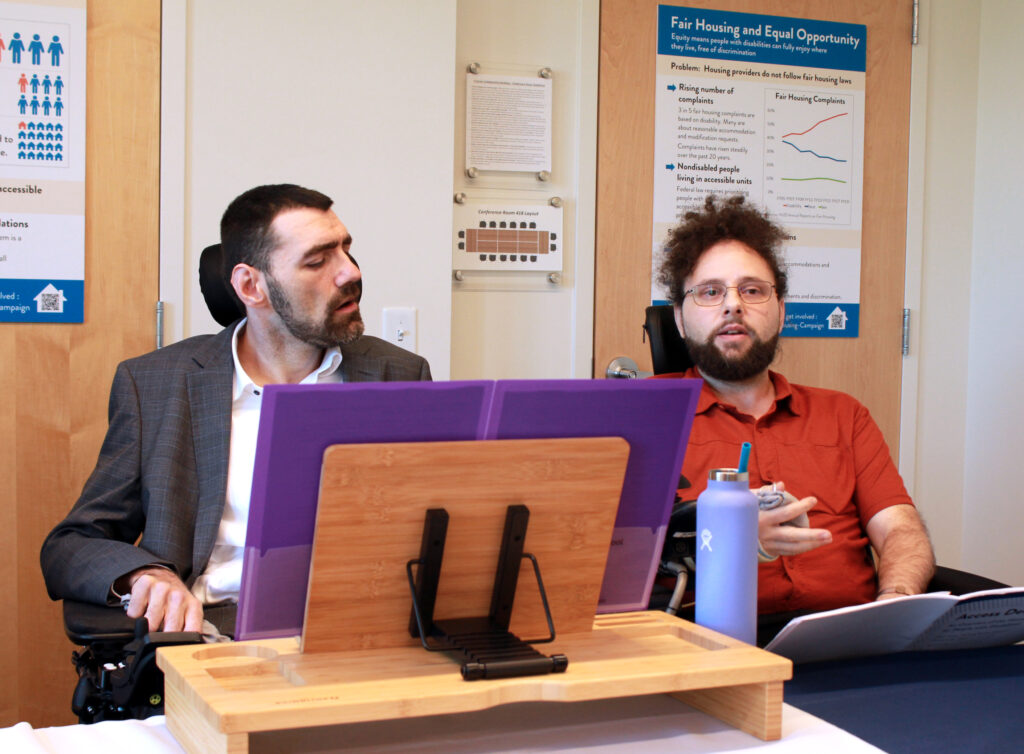
The event highlighted the release of a new report: “Access Denied: An Overview of the Housing Crisis for People with Disabilities.” Community Vision’s Housing Access Director Allen Hines wrote the 40-page white paper.
“Access Denied” begins by outlining the history of institutionalization of people with disabilities, Allen explained. This historic segregation created the deep housing inequities they experience today.
Allen discussed the report’s findings. He described how people with disabilities encounter three main issues when trying to find a home: affordability, accessibility, and discrimination.
Many people with disabilities are low or extremely low income. They face employment discrimination, Allen said. Anti-poverty programs, such as Supplemental Security Income, are insufficient to cover the cost of rent.
Allen also explained how the number of accessible housing units required by law is far less than the actual need. There is also widespread noncompliance with current accessibility requirements. This creates barriers for people with disabilities as they try to find housing.
In addition, fair housing and equal opportunity laws are not being followed. Allen described how housing providers are failing to grant reasonable accommodation requests and to match people with disabilities to accessible homes.
“Failing to provide accessible housing is a form of housing discrimination,” Hines said. “The requirements must be enforced and strengthened to better support people with disabilities on the housing market.”
Nico Serra, an advocate, spoke after Allen. Nico talked about how hard it was to find a place to live as a person who uses a wheelchair. Their story illustrated how being extremely low income limited their housing options. For many years they struggled. That had a negative impact on their health and wellbeing. Fortunately, Nico connected with Community Vision and Allen. Now, they have a good housing situation and are able to live their life more fully.
A Campaign for More Affordable, Accessible Housing
The new report “Access Denied” offers solutions that could ease the housing crisis for people with disabilities. These include creating more housing for extremely low-income households and more rent assistance for people with disabilities. In addition, better enforcement of accessibility requirements and enhanced tenant protections will help.
“Community Vision has appreciated the focus of state legislators and other decision makers on equity in discussions about housing production, as well as the explicit inclusion of people with disabilities as a vulnerable community that faces housing inequities,” Allen said. “We are hopeful that the renewed attention to the need for accessible housing will dramatically ease the crisis. People with disabilities deserve homes we can afford that grant us the greatest independence possible, free from discrimination.”
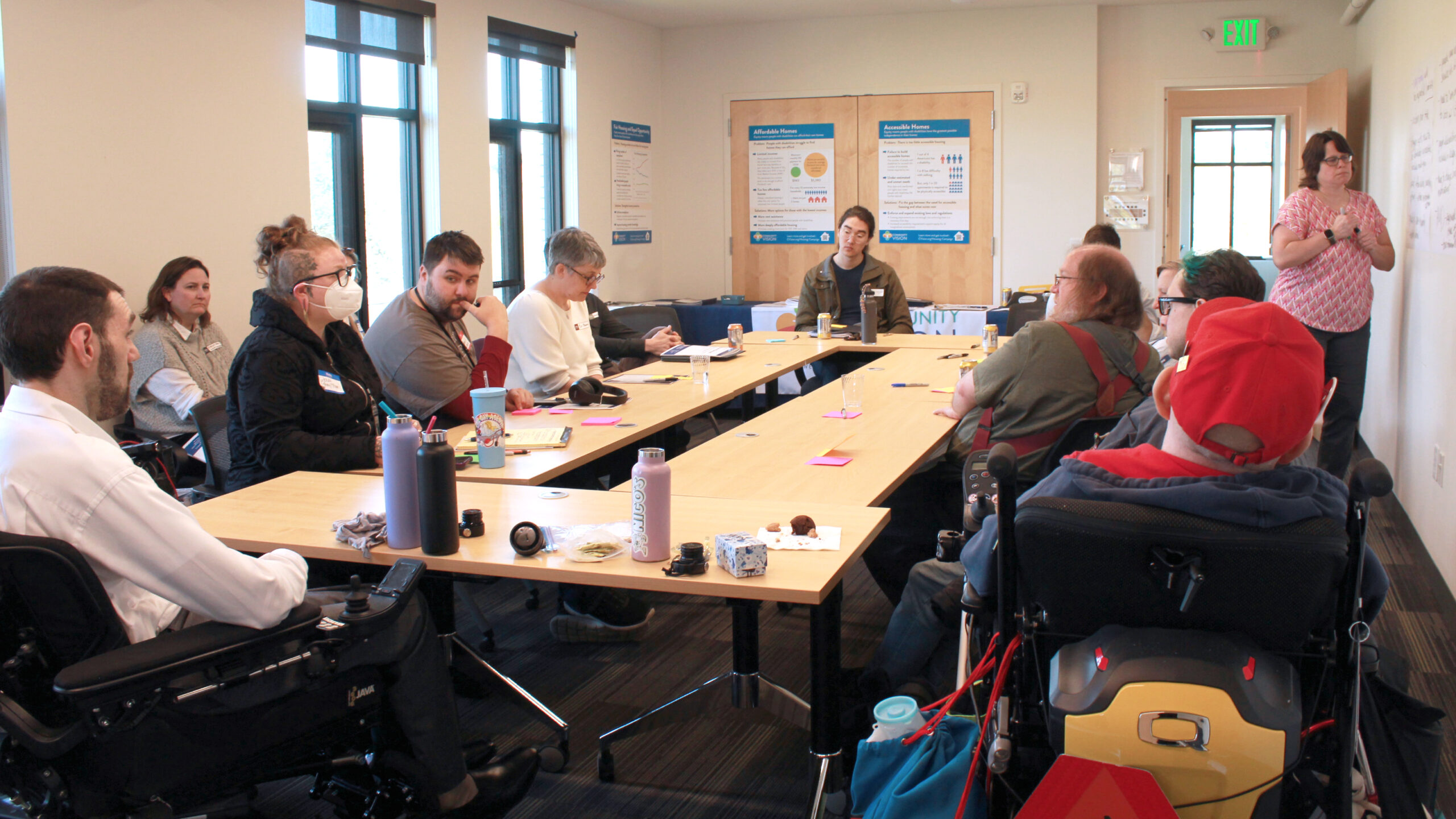
After the presentation, people enjoyed lunch and social time. The beautiful spring day drew many out on to the rooftop deck of the Seven Corners Building, where Community Vision has its offices.
Following the lunch break, more than a dozen people stayed for an initial meeting of a new coalition. The group will advocate for more affordable, accessible housing. There will be more information about the work of the housing coalition in future posts on our website and in our newsletter.
